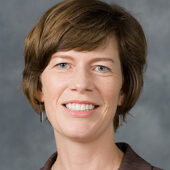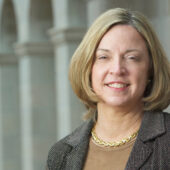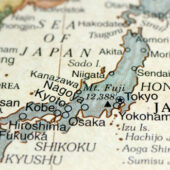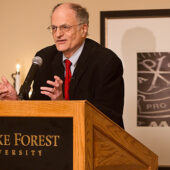Retired professor Paul Gross dies
 Professor Emeritus of Chemistry Paul Gross, who taught from 1959 until 1987, died March 17. For nearly 20 years, Gross was the coordinator of the University’s interdisciplinary honors program.
Professor Emeritus of Chemistry Paul Gross, who taught from 1959 until 1987, died March 17. For nearly 20 years, Gross was the coordinator of the University’s interdisciplinary honors program. Categories: Research & Discovery

 In Libya, the strategy of military intervention could spark a humanitarian crisis, says Associate Professor of Political Science Sarah Lischer. Author of "Dangerous Sanctuaries: Refugee Crises, Civil War, and the Dilemmas of Humanitarian Aid," Lischer studies refugees, humanitarian aid, civil war and African politics.
In Libya, the strategy of military intervention could spark a humanitarian crisis, says Associate Professor of Political Science Sarah Lischer. Author of "Dangerous Sanctuaries: Refugee Crises, Civil War, and the Dilemmas of Humanitarian Aid," Lischer studies refugees, humanitarian aid, civil war and African politics. More than 50 Wake Forest accountancy and law students are preparing tax returns for free at the Goodwill Industries in Winston-Salem through April 16. The VITA program helps lower-to-moderate-income, elderly, disabled or non-English-speaking taxpayers get their refunds faster.
More than 50 Wake Forest accountancy and law students are preparing tax returns for free at the Goodwill Industries in Winston-Salem through April 16. The VITA program helps lower-to-moderate-income, elderly, disabled or non-English-speaking taxpayers get their refunds faster. As images of the devastation in Japan fill television screens, it's important for parents to take the time to address whatever questions and fears their children may have about an earthquake or tsunami affecting their lives, says psychology professor and child-development expert Deborah L. Best (’70, MA ’72).
As images of the devastation in Japan fill television screens, it's important for parents to take the time to address whatever questions and fears their children may have about an earthquake or tsunami affecting their lives, says psychology professor and child-development expert Deborah L. Best (’70, MA ’72).  Professor Kenneth Hoglund's class explores the complexity of disasters and best practices for preparing for and responding to natural catastrophes. Japan's early warning earthquake system is just one way the country helped protect its people.
Professor Kenneth Hoglund's class explores the complexity of disasters and best practices for preparing for and responding to natural catastrophes. Japan's early warning earthquake system is just one way the country helped protect its people. The importance of the humanities to a liberal arts education will be on full display during a two-day symposium marking the official launch of the Wake Forest Humanities Institute on Friday and Saturday. Two nationally known advocates for the humanities — historian Edward Ayers and author Stanley Fish -- will discuss “The Humanities in the 21st Century.”
The importance of the humanities to a liberal arts education will be on full display during a two-day symposium marking the official launch of the Wake Forest Humanities Institute on Friday and Saturday. Two nationally known advocates for the humanities — historian Edward Ayers and author Stanley Fish -- will discuss “The Humanities in the 21st Century.” What do we gain and what do we give up with the latest technological tools? From the loss of privacy to the advantages of using digital apps, Professor of Communication Ananda Mitra shares ideas about how to cope with the complex challenges caused by the widespread adoption of digital technology.
What do we gain and what do we give up with the latest technological tools? From the loss of privacy to the advantages of using digital apps, Professor of Communication Ananda Mitra shares ideas about how to cope with the complex challenges caused by the widespread adoption of digital technology. The five stages of grief -- denial, anger, bargaining, depression and acceptance -- are a commonly accepted and comforting road map to overcoming grief. But the stages were never intended to be a uniform way of dealing with the death of a loved one, says Professor of Counseling Ed Shaw.
The five stages of grief -- denial, anger, bargaining, depression and acceptance -- are a commonly accepted and comforting road map to overcoming grief. But the stages were never intended to be a uniform way of dealing with the death of a loved one, says Professor of Counseling Ed Shaw.  As the Federal Reserve System approaches its 100th anniversary, some of the nation’s leading economists who study the Fed converged on Wake Forest to debate the success, failures and relevancy of the central bank and its monetary and regulatory policies.
As the Federal Reserve System approaches its 100th anniversary, some of the nation’s leading economists who study the Fed converged on Wake Forest to debate the success, failures and relevancy of the central bank and its monetary and regulatory policies. Wake Forest's work in regenerative medicine is in the news this week as the world’s first tissue-engineered urethras have been used successfully, a transplantable kidney is printed on TED Talks and new projects are underway at the regenerative medicine veterinary center.
Wake Forest's work in regenerative medicine is in the news this week as the world’s first tissue-engineered urethras have been used successfully, a transplantable kidney is printed on TED Talks and new projects are underway at the regenerative medicine veterinary center.